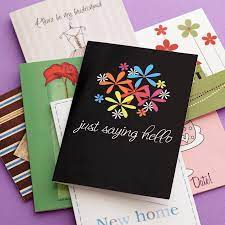Hi, I hope you are doing well today!
One of the biggest obstacles we deal with is knowing if something we have translated sounds “natural” or “idiomatic”. This happens in two situations:
- We are translating out of our mother tongue into another language which we are not as familiar with. So our native speaker intuition in that language is not fully developed. We can put together a grammatically correct sentence, then sigh in frustration when a native speaker of that language says, “But we just wouldn’t say it that way!”
- We are translating into our mother tongue, but because we know the other language so well, we run into “language interference”. Our brain subconsciously accepts awkward phrases or word order in our mother tongue because it works in the other language.
 As an example, yesterday a friend and fellow translator who is French asked me if “wish card” was a good translation of “carte de souhaits” in French, because she had seen “wish card” somewhere. I immediately replied, “We don’t say it that way, we say “greeting card”.
As an example, yesterday a friend and fellow translator who is French asked me if “wish card” was a good translation of “carte de souhaits” in French, because she had seen “wish card” somewhere. I immediately replied, “We don’t say it that way, we say “greeting card”.
It’s not that “wish card” makes no sense. We buy cards all the time with best wishes, birthday wishes, etc. The problem is that native English speakers are used to hearing the term “greeting card”. So when someone says “wish card”, our language antenna go up and we tilt our head and try to think of what they actually meant to say. That’s native speaker intuition in action.
And that brings us to our translation trick: Google is your best friend in this situation. No, I don’t mean Google Translate – that’s probably where “wish card” originated! And yes, you will find over 1 million hits on Google when you search “wish card” (make sure you search it with the quotation marks so you only get hits on the exact word sequence).
Why is that? It’s because there is a lot of English material on the internet that was created by non-English speakers without native speaker intuition. They do the best they can with their dictionaries, grammar guides and limited experience (or horror of horrors, using Google Translate without being fluent in the language), but it just doesn’t sound natural or idiomatic.
Now, search “greeting card” (within quotation marks) on Google… and you get over SEVENTY MILLION hits! That’s because this is the term more commonly used by native English speakers.
So enjoy this little trick when you are hesitating between 2 or 3 expressions in your translation, and wondering which is the most natural or idiomatic.
Have a great day!
Liane 🙂
www.LearnTranslation.com
www.NonprofitTranslation.org
